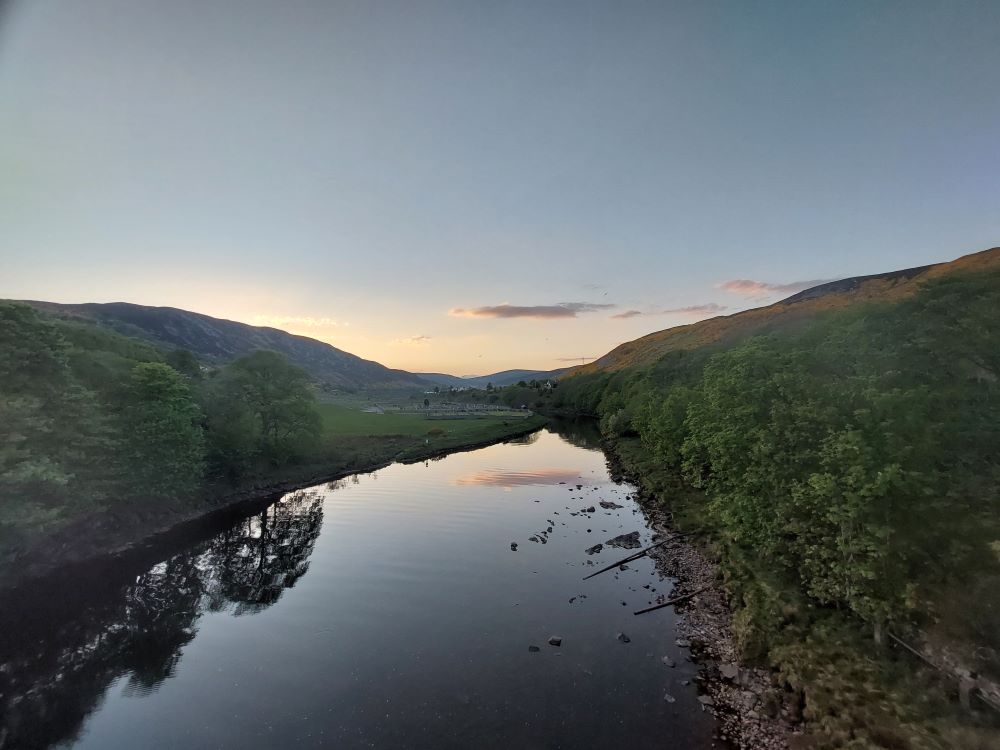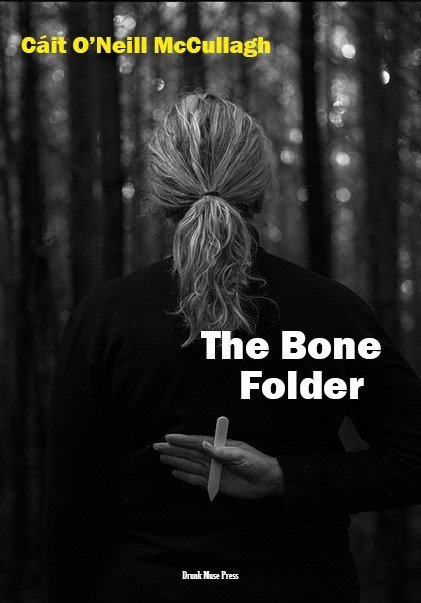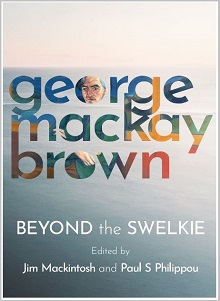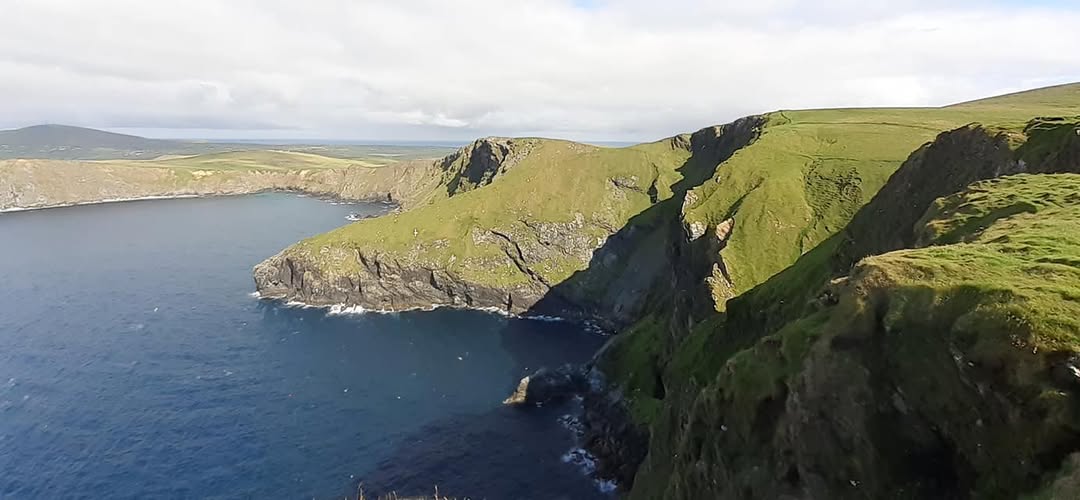Poet in Residence

Cáit O'Neill McCullagh
Cáit O’Neill McCullagh has been appointed as the UHI Institute for Northern Studies Poet in Residence in recognition of her exceptional contributions to literature.
This position will provide her with a platform to refine her craft and create new works, typically in connection with specific events or occasions hosted by the Institute.
She will also have opportunities to lead workshops and teach on various occasions.
You can contact Cáit and add to her continuing narrative on the Highlands and Islands of Scotland by emailing her ins@uhi.ac.uk
Cáit O’Neill McCullagh arrived in the Highlands as a teenager in the mid-1980s and fell in love with the unique communities, culture and history of the Highlands and Islands. After receiving a Distinction for her BA in Cultural Studies of the Highlands from the UHI Millennium Institute, Cáit went on to earn another Distinction for her postgraduate MSt in European Archaeology from Keble College, Oxford. Her thesis examined the factors influencing the Christianisation in Northern Pictland through a semiotic analysis of cross slabs and related material culture from the First Millennium CE.
After a period working as a community archaeologist and ethnologist and as a curator on the Isle of Lismore, and at Inverness Museum and Art Gallery, Cáit took up a SGSAH studentship for a practice-based PhD, supervised in partnership between Heriot-Watt University, UHI Institute for Northern Studies, and Shetland Museum. The practice-based projects upon which her research was based (including co-producing new films and creative writing, and the co-curation of a virtual museum of maritime cultural expressions with organisations and community groups from throughout the Northern Isles). Circumstances, including her diagnosis with cancer, have curtailed her writing-up of this work.
“I was one of the first students to graduate from the fledgling UHI Institute for Northern Studies almost 25 years ago, so I am delighted to have the opportunity to work with the INS staff and students in this new position of Poet in Residence. I aim to highlight their remarkable work in culture, heritage, and literature and write poetry about the Highlands and Islands of Scotland, about my own home and place of belonging, and hopefully stimulate conversations and reflections on the past, present and future of our rich and nationally and internationally, significant culture, environment, region and people.” Cáit O’Neill McCullagh
In December 2020, she began writing poetry at her home in Easter Ross. Her poems are published widely in journals, magazines and anthologies, including by the Federation of Writers Scotland; Bella Caledonia; Howl New Irish Writing; Ink Sweat & Tears; London Grip; New Writing Scotland; Northwords Now; Paperboats; Poetry Scotland; The Long Poem Magazine; The Poets’ Republic, and in The Scotsman (Poem of the Week).
Cáit’s debut pamphlet ‘The songs I sing are sisters’, a collaboration with Sligo-based poet Sinéad McClure, was a winner of Dreich’s ‘Classic Chapbook Competition’ in 2022, and was published by them in the same year. It won a Saboteur Award in 2023.

HANSEL - Cáit O’Neill McCullagh
Put before you two likenesses—
crimson & silver; sweet-fresh
& saltit; the river’s rippling, sown
with salmon, then pickled brackish
as she floods the ebb; greets the sea,
becomes tide; keel & net. First,
let it be those hands that capture
your eye. Ribboned in cloots; swift
shrouding against brine & blade.
Able; nimble, they are instruments
of the dawn, spilling it scarlet—
a shoaled lustre of maws, gawping;
reddened fingers, swippert, as wind-
quickened poppies among the corn.
They flash the plump, pewtered bellies;
cleave them: throat to forkit tail.
Turn now. Dial your gaze to dusk;
to the dimming simmer of the primrose
sun (becoming saffron; plume of gold-
crested wren, whins), reefing the day
& setting itself, a crown upon the curls
of a quine; a queen cloaked in the hemp-
wave-weave of a pursed seine, drenched
in mirr of satin. Glisk. Silvered.
Darling. Let it be those feet (peep-
toed, slippered) that lead you to dance:
a village hauled around the hope
she havens—that the west-haming sun
will return; lift its light to you again,
just as the catch is lifted to the hull.

The Bone Folder
Her first full-length collection, ‘The Bone Folder,’ was published by Drunk Muse Press in July 2024. Reflecting the linguistic traditions of her Irish and Highland upbringings; her work and research as an archaeologist and ethnologist throughout the Highlands and Islands, and her recent experiences of cancer diagnoses and treatments, this collection has been praised for announcing ‘a bold and visionary writer’ who ‘crafts the heartwood of language into luminous work that sings with life’.
Reviews have been published in The Bottle Imp; The Glasgow Review of Books; Northwords Now and Paperboats, and poets John Glenday, George Gunn, Marjorie Lotfi, and Michael Pederson have given their commendations. The volume can be purchased online at Drunk Muse Press.
Cáit has performed her poetry at numerous National and International poetry gatherings, including readings at Badenoch Storylands, Belladrum Tartan Heart Festival, Lime Square Poets, Fruitmarket, Edinburgh, Flight of the Dragonfly, Saint Mungo’s Mirrorball (at Glasgow CCA and StAnza), and the Scottish Poetry Library. She has also been invited to feature in podcasts including ‘Eat the Storms’, ‘Paperboats’, and UNESCO RILA, University of Glasgow.
Her poems have inspired works by ceramicist Rachel Ho and painter Becs Boyd, and by musician Anita MacKenzie. One of Cáit’s poems has also been included in a sculpture by the artist Helen Dennerley. She has been commissioned to design and tutor creative writing workshops by, among others, Timespan, and Highland Climate Action.
On the Board for Moniack Mhor, Cáit is also a Trustee and Co-Director of The Wee Gaitherin Poetry Festival; a founding member of the Scottish Highlands and Islands Poetry Society Steering Group, and a Lead Reader for Open Book. Her poetry has earned her recognition with diverse organisations, including being inaugurated as Inverness Skatepark’s first ‘Poet in Motion’, and made a ‘Makar o the Muinth’ by the Scots Language Centre.
Currently nominated for a Pushcart Poetry Prize, she continues to outrun cancer and is working on her second collection.

Beyond the Swelkie
In 2021Cáit wrote a chapter entitled, ' An Orkney Worlding: George MacKay Brown's Poetics as Waymarkers for Navigating the Anthropocene' in the book, 'Beyond the Swelkie' published by Tippermuir Books Ltd.
This chapter is an invitation to consider the continuing significance of aspects of George MacKay Brown's writing as resources for contemporary readers facing the challenges of this Anthropocene age.
The Beyond the Swelkie Chapter is available for download with full permission of TipperMuir Books Ltd
The book is in print and is available to buy via Tippermuir Books Ltd.
O’Neill McCullagh, C. (2021) ‘An Orkney Worlding: George Mackay Brown’s Poetics as Waymarkers for Navigating the Anthropocene’, in Jim Mackintosh and Paul S. Philippou (eds.) George Mackay Brown: Beyond the Swelkie (2021) - A Collection of Poems & Essays to Mark the Centenary of George Mackay Brown (1921-1996), Perth: Tippermuir Books Limited, pp.163-187

SONNET FOR A SCATNESS BEAR - Cáit O'Neill McCullagh
Not all who ‘wonder’ are lost. In Scatness,
a bear, caught as earth unturned to the sun,
winters ‘steely-shelled’ beneath the broch house,
dreams Tír Tairngire; plump-wise salmon &
the berry-blushed throat of the robin. Her
song for him ripens the world sunwards. Wake
peerie bear. You remained ‘from here’, watched
millennia dance change. Deep place makar,
I give you honey - wound-mender, Boyne sweet;
petrichor, fragrance of rained-rock & blood
of Fionn - compass & curragh; & peat-
wet sphagnum, minder of voar’s every bud.
Become belonging here, paw her knowledge
& fish freedom from shörmal’s frayed edge.